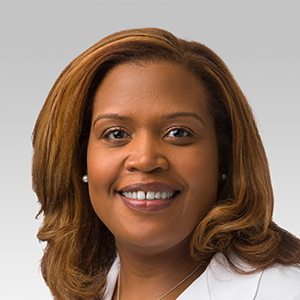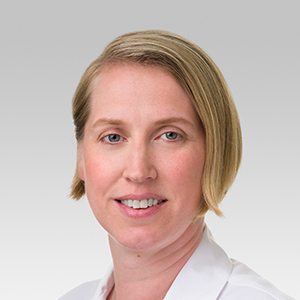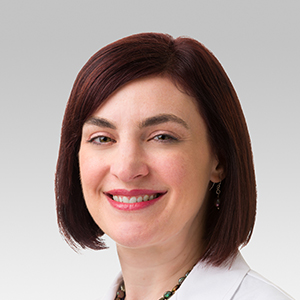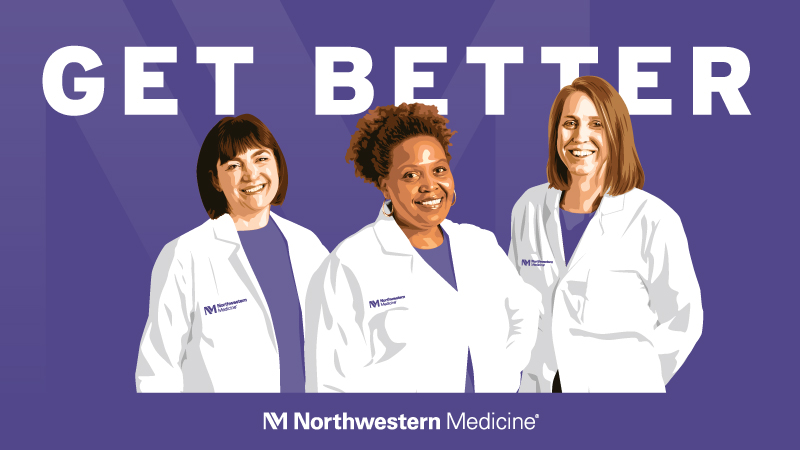SEASON 1 EPISODE 9
Get Heart Healthy [Podcast]
What You Need to Know About Heart Health
Published May 2022
About this Episode
It makes everyone tick, but keeping it healthy can often be easier said than done. A Northwestern Medicine cardiologist talks about what heart health means and why it matters.
Featured Guest Experts
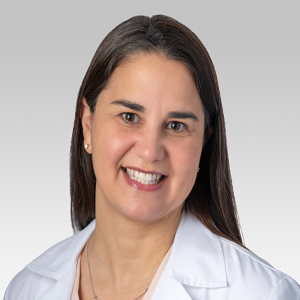
About the Get Better Podcast
Living a healthier life is a journey with no final destination: You can always get better.
Susan Russell, MD, Khalilah Gates, MD, and Michelle Prickett, MD, are three pulmonologists at Northwestern Medicine who help people get better from critical illnesses. They are also lifelong friends and lifelong learners who want to get better from head to toe.
These three physicians will learn alongside you as they interview other Northwestern Medicine experts about health and medicine topics meant to help you achieve better health.
Listen
Disclaimer: This podcast does not substitute for medical advice from a clinician.
Transcript
Russell [00:00:03] Let's get stronger.
Gates [00:00:04] Healthier.
Prickett [00:00:05] Calmer.
Russell [00:00:05] Smarter.
Gates [00:00:05] Better.
Russell [00:00:07] Living a healthier life is a journey, not a destination.
Gates [00:00:10] You can always get better.
Prickett [00:00:12] Let's get better together.
Gates [00:00:20] Heart disease is the leading cause of death for adults in the U.S. It's important to think about your heart health, but often hard to know where to start. I'm Dr. Khalilah Gates.
Prickett [00:00:29] I'm Dr. Michelle Prickett.
Russell [00:00:30] And I'm Dr. Susan Russell. All right. I'm very excited to learn about when it actually is the heart. It's kind of a joke between pulmonologist, lung doctors and cardiologists — heart doctors — because the heart and the lungs are so intertwined about, you know, about how when it actually is the heart. How, "Oh, it's not the heart." "No, it's not the lungs." "It's the heart." "It's not the heart."
Prickett [00:00:51] I'm interested in really understanding, like, how heart issues affect women. I think for me, it's really understanding, like, how does it present differently?
Gates [00:00:59] Absolutely. And I think I am looking for, how do we modify our risk factors? One, what are the risk factors now and then how do we modify them?
Russell [00:01:09] I would also be interested to learn a little bit about how much of this is modifiable versus how much of this is genetics driven. Like, I have a strong history of cardiac disease in my family, and it's a little concerning because I kind of wonder sometimes, like, is it a foregone conclusion that I will have a heart attack just like my dad did? So how much of this is something that I can really prevent with doing the hard stuff of diet and exercise and meditation to keep the epinephrine at bay versus things that are really kind of built into my genetic code and are kind of waiting for me in the future.
Prickett [00:01:53] And with that, people talk a lot about diet. To me, it's like this kind of people talk about it like, in general, good diet. Like, what is a heart healthy diet? Like, what is helpful?
Russell [00:02:01] You know, and even beyond just diet, like, what are practical prevention tips for heart disease in general? I mean, I know there's more than just diet alone.
Gates [00:02:11] I was thinking that when you said the possible genetic aspects of it, and even if there is a genetic risk, are there any things that you can do to modify that risk?
Prickett [00:02:22] So prevention is key. What are some practical heart disease prevention tips that we may be able to implement at home?
Gates [00:02:43] We're joined today by Northwestern Medicine Cardiologist Dr. Patricia Vassallo, who is going to give us a crash course in heart health. Welcome, Dr. Vassalllo.
Vassallo [00:02:53] Thank you for having me.
Gates [00:02:54] Let's start off nice and easy. When we say heart disease, what exactly are we talking about? Why is it so prevalent in the United States?
Vassallo [00:03:02] There's a lot of reasons, but most of all is because we're a privileged society and we have so much in abundance. So, that means we can go to the store, and we're inundated with food that tastes amazing. I think that it's so prevalent in the United States because we start with sometimes not the best lifestyle, and we don't exercise as much, and then we add stress. So, if you look at the three of us, we're prime for heart disease, even though we're women. And people won't talk about that. We're in that age range, I say, of middle age, of 40 to 60, when people are really at the highest risk for developing heart disease for the first time. And that has to do with stress. And so, I believe that all this stuff leads to us not eating as well and not taking care of our bodies as well. And we have pregnancy, that adds weight sometimes. And then we develop the risk factors, which are high blood pressure, high cholesterol, obesity — especially obesity that's around your abdomen. And that happens again when we get older and we're not doing as much, and then diabetes. So why does diabetes happen? And I'm not talking about diabetes that happens when you're insulin-resistant, because that's a different type of diabetes. Diabetes is a big risk factor for eventually developing heart disease. And then, the biggest driver is age, and we want everyone to get older. But the leading cause of death in the United States is cardiovascular disease. It's cancer and heart disease. Cancer and heart disease. And so, it's really important to have this discussion. It's really important for all of us to start taking care of our heart, very young age.
Russell [00:04:41] And what about family? How does that play into it? My father, to give you some background, had a cardiac arrest when he was in his early sixties. So, of course, I'm concerned about how family will play into all this, and how much does that kind of tip the balance, even if you're following a healthy lifestyle?
Vassallo [00:04:59] Family history is exactly why I went into cardiology, and it's what affects my family and what we die of. So, it's very personal to me. We don't have weight problems, but we have heart disease problems. And so, my grandfather died a sudden death at 45 and my father became a cardiologist and kept all of his uncles alive into their eighties. But unfortunately, they all had coronary disease and they had stents, they had bypass surgery, et cetera. And so, your family history is so important. And it's so important, also, because some people have high blood pressure in their family. Everybody in their family has high blood pressure. Everybody in their family gets diabetes. There are genetic risks for that. And you really can't rely on certain things, like race and ethnicity, because it really depends on your family and you're more like your siblings than your parents. But for you, with that family history, I think you should see either a very good internist or a cardiologist early, and that is because preventive cardiologists are more aggressive about treating cholesterol and also doing some — I call them basic — but some laboratory tests that run genetic studies that can be done just with a blood draw. And those tests are lipoprotein little a, high sensitivity CRP, which looks for inflammation and also apolipoprotein B.
Russell [00:06:29] Oh, this is fascinating. I'm heading to my local cardiologist and then I'm going to be knocking on your door. Exactly.
Gates [00:06:36] So, Patti, you just gave us the alphabet soup, lipoprotein, the, I can't even tell you what you just said, but all of this is very confusing. We have the HDL and LDL and the total cholesterol and triglycerides. Can you just take a minute or two to tell our listeners what that all means? What is that? What is the alphabet soup? And why do we look at it?
Vassallo [00:06:59] People come in all the time, and they tell me what their total cholesterol is, and I'm sort of blunt and I just say, I don't want to know your total cholesterol. I want to know what you just said — the alphabet soup. So, the most important number is your LDL. That's low-density lipoprotein. Don't remember that. Just remember L for low because it's lousy LDL. It is the most anthropogenic particle. What does anthropogenic mean, it's building plaque. It wants to build plaque on the lining of your arteries. And when you say, Dr. Russell, that your dad had a heart attack, okay, he had a heart attack. That does not mean he had a 95% plaque in his artery. What it means is that there's a soft, cheesy plaque lining the artery. And for whatever reason, and usually it's stress, whether it's a good event like a wedding or somebody passes away suddenly, or a difficult job, a difficult day at the office. Stress can be a big precipitant of a heart attack. And when plaque ruptures, that's what leads to platelet and thrombus forming there to cause a heart attack. So, your LDL is the most important. You want it low. For a number, everybody should be under 100, which is very difficult. And then those people with heart disease should have it closer to 70. So that's, well, low for lousy LDL. Then you have HDL. And HDL is really difficult because we call it the good cholesterol. It's HDL, high-density lipoprotein. And I say to remember that by, its "h" you want it to be high, and that's because high HDL, so that's greater than 40 in men and greater than 50 in women, is a better prognostic indicator. So, a lot of women come in to me and they say, "Don't worry, Dr. Marcello, I have a high HDL and my LDL is high. But don't worry about that, I was told my HDL is super high, I'm good." And that data is really not true. So, it's really the absolute LDL, but a high HDL is good. And then the last number, well, you get the triglycerides. And what are triglycerides? First of all, triglycerides should only be evaluated when you're fasting. So, if your doctor says, oh, just get your cholesterol, which we sometimes do not fasting and your triglycerides are elevated, just repeat it. That's the first thing. Unless it's very elevated, triglycerides are the most responsive to nutrition. And when these are elevated and the number you're looking for there is, you want the number to be under 100 optimally and less than 150 is when the cutoff will say it's normal. Triglycerides are just another type of cholesterol that just increase your risk, too, for heart disease, and particularly if they're high, they usually also increase your risk for having diabetes. So, if you ate pizza the night before, or you had a party with your friends and you weren't so good, and then you get your lipids tested the next day, just get them retested first. Because when we do cholesterol, we use the triglycerides to actually calculate the LDL. It is not a direct measurement. So, it's really important that you have a fasting lipid panel if it's abnormal, basically a long answer. But HDL, you want to be high, LDL is lousy, you want it to be low. And triglycerides, you also want to be low. But those are the most responsive to lifestyle.
Russell [00:10:44] You mentioned the word nutrition many times when you were talking about the triglycerides, in particular. But I want to talk about that in the context of overall heart health. How does nutrition play into heart health?
Vassallo [00:10:57] Nutrition is really important, and it's, I would say, it's not that difficult when you think of the concept. Right? But it's difficult when somebody brings in brownies that look amazing. But what I tell people is there's no special diet. I say as much as possible a plant-based nutrition. What does "plant-based" mean? It doesn't mean vegan, doesn't mean you have to be a vegetarian. But animal protein in general has more saturated fat. And really the enemy is not saturated fat. The enemy is just our overall nutrition plan. I try to keep it simple by saying fruits and veggies, fruits and veggies, or, as my trainer says, veggies and protein. So how are you going to get the protein? You should get the protein from plant forms, and you have to have fat. So, I have people that don't eat any fat and then they wonder why they're increasing their weight because fat satiates us. So, what type of fat, plan- based fats, what does that mean? That means extra virgin olive oil. It comes from olives, avocado oil. It comes from avocados. Avocados are an amazing form of fat because it's plant based. So, you can take a piece of toast and you can put avocado on that and put tomato on that, and that could be your breakfast. I think eggs are an excellent form of protein because they're inexpensive, but some cardiologist would say you should limit your eggs. There are good studies that say if you eat six eggs a week, you will not change your cholesterol. Different nuts, if you're not allergic to nuts and seeds, right? So peanut butter, almond butter, any kind of butter, as long as you don't put added sugar. Fish. Fish is wonderful. So, I eat a lot of fish and tuna. Fish, albacore, tuna. I know you have to watch the mercury. There's always something you have to watch. But salmon has a ton of omega 3. It's very easy to cook, and you can put that in the toaster oven. When you get home from work, go change your clothes. And by the time you come back, it's grilled or it's baked. I just think you have to eat more fruits and veggies, seeds, plants in general. And then when you eat meat, just eat leaner cuts. So, you can eat chicken and you can eat steak, but you want to not eat a marbled steak. You'd want to get the teeny filet and then some spinach on the side.
Russell [00:13:19] Oh, I'm glad I ate before this podcast.
Gates [00:13:24] So, you've laid out very nicely what a heart healthy diet I,s or what we should be aiming for. But how does exercise fit into this?
Vassallo [00:13:33] So exercise is really important, as well. And the new phrase is, "Sitting is the new smoking." So pulmonologists don't like to hear that, but it's true. So what do we do all day? What are we doing right now? We're sitting for an hour. So, I try to tell people, you know, use the standing desk, make up reasons you have to go walk around. I tell my retired patients, set a kitchen timer. If you're sitting for more than 2 hours, you got to get up. I don't care if you walk around, do three loops around your living room, get up and walk in place. I have a lot of my patients just do sit-to-stand where you can walk and work on your core. For us, working out as much as we should because we have kids and we're trying to get to work. So, if you have little kids, put them in a stroller and go, or let them run around the park. But don't sit on your phone. Just walk around the park, do jumping jacks with them. So, I think we just have to move more. But I try to tell my patients — especially when they're busy — add it into your day and you have to put it on your calendar, a 30-minute walk if you can get out in the middle of the day like I try to do instead of a coffee break in the afternoon, I just try to take a 15-minute walk outside. I think weight-lifting is also very important. At the age of 40, your muscle mass starts to decrease and that only decreases as you get older. And so, I have all my patients do some sort of light weight-lifting or even just bodyweight, like doing the core, even just standing up out of a chair. That's really good for your core. But we all need to work on our muscle mass, especially women lose their muscle mass very quickly. And I would just say move more in your daily life, try to get your 10,000 steps. But if you're getting 5,000, get 6,000, you know, work your way up so you don't get injured, and really try to do a stationary bike, walking elliptical, try to change it around.
Gates [00:15:25] Well, first of all, you made me feel real, some kind of way, 40 and over and woman and muscle mass. I was like, oh.
Vassallo [00:15:32] And you're a mom, right? So, you're a mom. So, you're taking care of a kid. You're getting all — you're trying to make, like, dinner. You're trying to be a good partner. I mean, there's a lot going on. So, I always say engage your family because, like, think about little kids. They have so much energy and we're like, "sit down and go to sleep," you know? And that's the last thing they want to do. Like we want to take a nap, and they want to run to the park. Go run to the park with them, be active with them.
Gates [00:15:58] Can you explain, like, the differences between heart health, between men and women, like why is there such a discrepancy there?
Vassallo [00:16:06] To me, the biggest reason is we underestimate the risk in women, just like we underestimate them in a lot of other ways. The main thing is there is a difference, right? There is a difference between women and men because women tend to develop heart disease later, and women have a lot of hormonal changes throughout their lifetime. And so around the time when you're young and you're going through puberty, you have a lot of hormonal changes, but you have estrogen and estrogen is protective. Also, women get pregnant, and pregnancy is a big stress on your body. So now we know in women, you have to ask about pregnancy history. And if you are diagnosed with pre-eclampsia, which means high blood pressure during pregnancy, someone tells you, "You have protein in the urine," "You have to deliver your baby early because your blood pressure is going up," or you have more sugar, you have sugar issues. You have to be followed closely to make sure that you do not develop diabetes early, that you do not develop high blood pressure early. And these are really important because we know if we treat these risks early, whether that is lifestyle or medicine, some people have to be treated with medicine early. We can prevent the long-term effects. In terms of women and cardiovascular disease, like having plaque buildup, it is also different because women tend to develop it about ten years after their male relatives, and that, again, is due to the protective hormones that women have. So, if you don't have those hormones, you have a hysterectomy and you have your ovaries out at a young age, you're different, right? Because you're going into menopause early, and you have to be careful about certain hormonal treatments that we give to women all the time, like birth control. If you have a family history of clotting and you take birth control medicine, you have to be very careful, and you have to tell your doctor. And again, I don't think 40 is old, but as we learn in COVID, 40 matters and as you're getting older, you have to be careful with hormones, especially over the age of 50. But, that being said, someone with a family history, like myself, can develop plaque early despite doing everything. So, I try to do everything I can. We really have to be treating the person sitting in front of us. And so, you have to make sure you sit down with your doctor and you say, "Hey, my dad had this happen. What do I do?" And I think we're going to talk about a coronary calcium score, but sometimes you don't have calcium build up until later. And so, again, it goes back to, what's your LDL? what's your blood pressure? And you can check your blood pressure at home. Now, I have all my patients. I have a blood pressure cuff. And if they can't afford one, Northwestern Medicine provides it. And that's the kind of community reach we want to do. We say blood pressure is a silent killer. And then people say, "Oh, it's just elevated when I'm in the office." Well, what is it at home? "Well, I don't know. I don't check." You just have to check. And women, we say, have atypical symptoms. And I say, no, we don't. We actually don't have atypical symptoms. If you look at men and you take a history from men, which I do, anyone that's had a heart attack, I say, what does it feel like? And ask your family, what did it feel like? It's vague. It's pressure, it's heaviness. "I was nauseous. I threw up." I mean, that's very, to me, it is sometimes like an elephant sitting on your chest. If you're going to have a heart attack, let's hope you have the elephant sitting on your chest. I always tell my patients, don't say you're anxious. Say what your symptoms are. Say you can't breathe. Say you're having chest discomfort. Say you're having arm pain. Say you're sweating for no reason at all. So, you think you're going to die because, yeah, it could be a panic attack, but rule out me dying first. And I think Northwestern Medicine is such a wonderful place to practice because we run the tests and we don't say, "Oh, you're a woman, we're not going to run the test." So, you just have to be very aware that heart disease is prevalent. Anybody can have heart disease, and if you're a woman between 40 and 60, you can have an event. And if you're a man between 40 and 60, you can have an event. So, you got to just know your body and go in and advocate for yourself or for your family.
Russell [00:20:28] That's such a great advice, both for advocating for yourself and for your loved ones.
Gates [00:20:32] I do want to circle back because you mentioned something called the calcium score. Can you talk a little bit more about this calcium score, the scan, and who should be getting it?
Vassallo [00:20:43] Coronary calcium is a really important marker because it means that you have plaque in the arteries of your heart and the plaque has been sitting there for so long, this, like, cheesy plaque substance that forms in the arteries that it was getting calcified. We don't want plaque to build up at all. Coronary calcium is an important marker when you're older, so you don't want to use it in like a 30-year-old or even a — Susan comes to me and says, "I want to know." Well, she's under 50. A woman may not want to do a coronary calcium score because unlikely that she's going to have calcified plaque. In older people, though, And I will say, older is men over the age of 45. Okay? Remember, men's risk starts going up at 45, women at 50, 55 post-menopause increases their risk. But again, if you have family history, it's different. So, I say men, even 40 above, women, 50 or above, can get a coronary calcium score. It's a low radiation chest CT scan. Right. So, it shows you your whole chest. They're very inexpensive. But you're right, it picks up pulmonary nodules. It picks up, I've honestly picked up some small lung cancers, and we're doing lung cancer screening now with these low dose radiation scans. So, I think you have to be the right person to get it done and you don't want to follow it. If your calcium score is zero, which is what you want, it doesn't mean you don't have plaque. And I think that's one of the misunderstandings of calcium score. You still can have soft plaque that is not, has not calcified yet. So you have to be very careful. If a calcium score is zero, it doesn't mean you don't treat your cholesterol, you don't treat your blood pressure, you don't tell people to prevent diabetes and stress and all of that. But if your calcium score is anything, as a woman, that is very abnormal.
Gates [00:22:40] Dr. Vassallo, we'd like to thank you for joining us this afternoon and sharing your knowledge and pearls of wisdom with us.
Vassallo [00:22:48] Thank you so much for having me. This was fun.
Russell [00:22:55] Thanks for listening to Get Better.
Gates [00:22:57] We hope you leave this podcast better than when you started.
Prickett [00:23:00] For more information, visit NM.org/healthbeat




